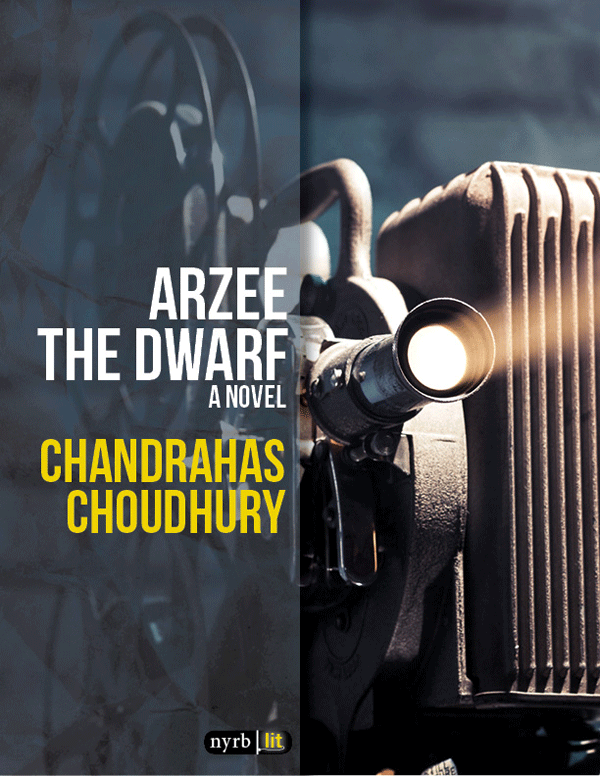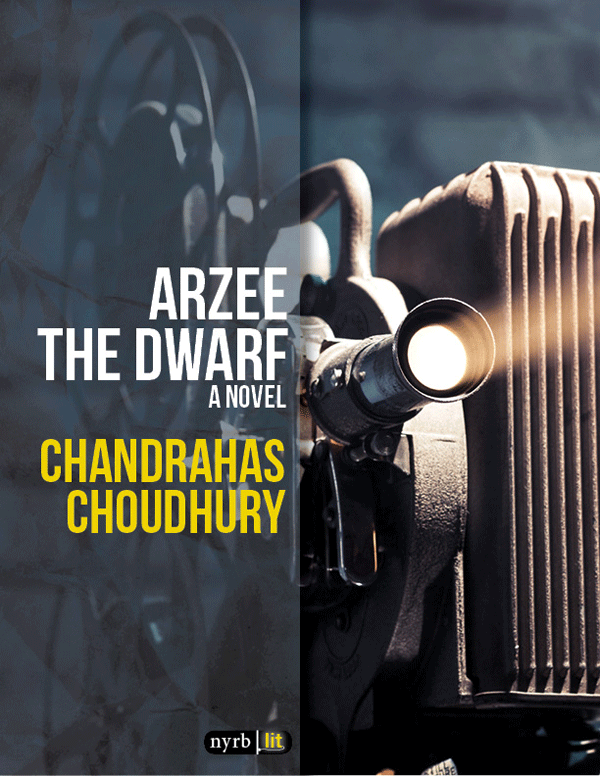Arzee the Dwarf offers both a small, potent shot of narrative energy and a wide, vivid palette of human feeling. Choudhury shows that there is no one quite like Arzee, and yet there is an Arzee in all of us.—Nadeem Aslam, author of The Blind Man's Garden and Maps For Lost Lovers
Choudhury's novel, like Dickens', teems with eccentric characters—from Firoze, the lugubrious chief projectionist, to Dashrath, a taxi driver with a love of 'expansive formulations and poetical ambiguities,' to Arzee himself—but the author never resorts to caricature. The humour is never forced, but arises from the characters themselves, especially Arzee who loves nothing more than making mountains out of molehills, and foundering helplessly in teacup-sized storms.... Choudhury takes a while to find his feet, but once he loosens up he lets fly with prose as acrobatic and apparently effortless as a tumbler at a circus. But though a dwarf takes centre-stage, this is no freak show. Choudhury has an ear for dialogue, an eye for the peculiarities of modern life, and a heart for its rich and strange possibilities
—Anita Roy, Tehelka
The novel throngs with a memorable cast of characters, drawn with great economy in prose that is controlled and evocative. We meet, with Arzee, several of his colleagues, from the spectral Abjani to the canny Phiroz; Deepak, whose heart is really not quite in the villainy his profession demands; and Dashrath Tiwari, the taxi driver given to poetic eloquence and philosophical rumination. To this human cast, we may also add other life forms. The Noor, its corridors adorned with framed photographs of Bollywood heroines of years past, is both character and setting, demanding its own adjective: Noorian. The Babur—a linguistic mutation wrought by the Indian tongue on the German name Bauer—the magnificent life-force of the Noor, uncomplainingly throwing its beam on screen day after day. Tyson, the house dog of the Noor, who we meet briefly. And, finally, the great city of Bombay, in all its shabby, resplendent charm.
—Rohit Chopra, Interjunction
Chandrahas Choudhury's debut novel, Arzee the Dwarf seemed to me to be remarkably different from anything else that has appeared in recent years in South Asian English fiction. Arzee is a welcome change in a literature that has, for the most part, been susceptible to reflecting the narrow, English-speaking world of its writers and many of its readers.
—Samhita Arni, The Caravan
About a quarter of the way through Arzee the Dwarf, one of the characters, Dashrath, the wise taxi driver, who supplies dialogues for Bhojpuri movies and loves his metaphors, asks, 'Do we live the life given to us, or do we really live a kind of dream life? Isn't our real life really a life of the imagination?' It is not an original thought, but the success of Chandrahas Choudhury's debut novel lies in how movingly he manages to bring out this little truth through the life of the eponymous Arzee the dwarf.
—Omair Ahmed, India Today
From the first page, this is a triumph of storytelling in what Chandrahas Choudhury chooses to reveal, and at what precise pace....To quote examples of any of the lyrical, funny or luminous images from this book would be to spoil them for the potential reader.
—Gouri Dange, Outlook
In the world of Indian English writing, which is more or less my linguistic field, literary watchers would perhaps cite Chandrahas Chaudhury's Arzee the Dwarf among one of India's surprises. A delightful debut novel that combines exceptional art with a great story, it traverses the diversity of Bombay with as much aplomb as Midnight's Children or Slumdog, giving it something of a cosmopolitan colouring without straining overmuch for effects. Arzee, a projectionist at a local cinema, has a "small frame" but a "big imagination" who moodily maps out his version of Bombay when he loses his job and unwittingly absorbs us into his world of exaggerated chaos. Chaudhury is a master of understatement and suggestion which works to his great advantage.
—Rumina Sethi, The Tribune (India)
Choudhury shows the distinct influence of literary greats like Gunter Grass and Scott Fitzgerald in his creation of an almost-feral, self-obsessed dwarf and description of the larger than life Noor cinema as it 'projected an air of stern and perpetual rebuke, a grouchy bystander, a great negator' to the world of men. But his writing is all his own, sparking with energy, and cultivated from the culture of this city.
—Karishma Attari, Daily News & Analysis
Unlike the typical melodrama, the nuances of thought and description in the book, and the intricate juxtaposition of comedy and pathos, lift the narrative beyond mere emotional manipulation and into the realm of Shakespearean drama.
—Vinayak Verma, Deccan Herald






